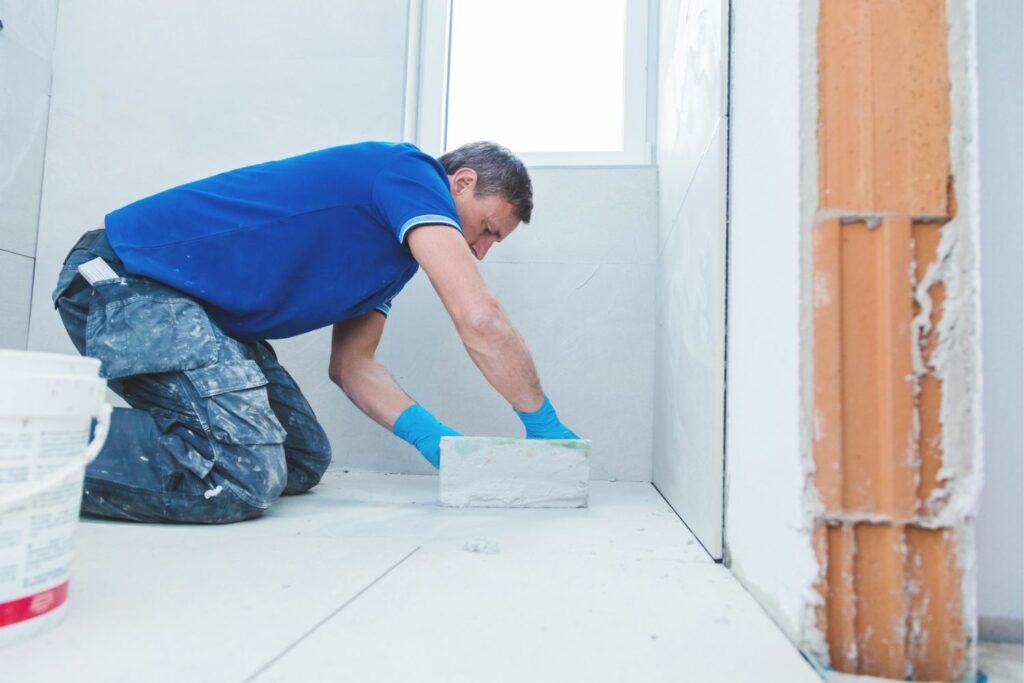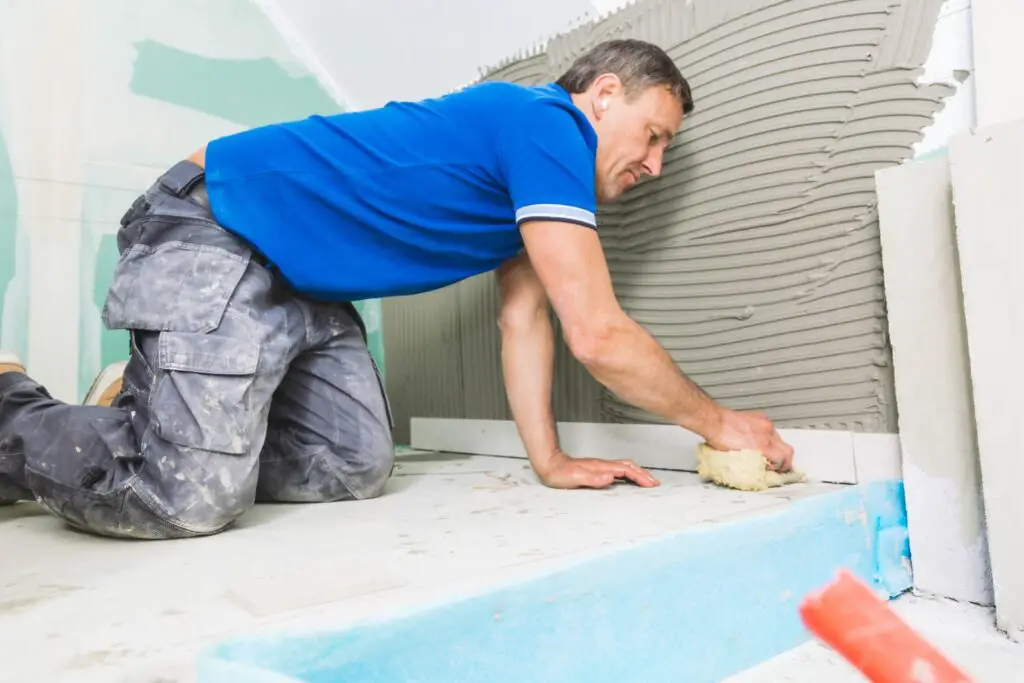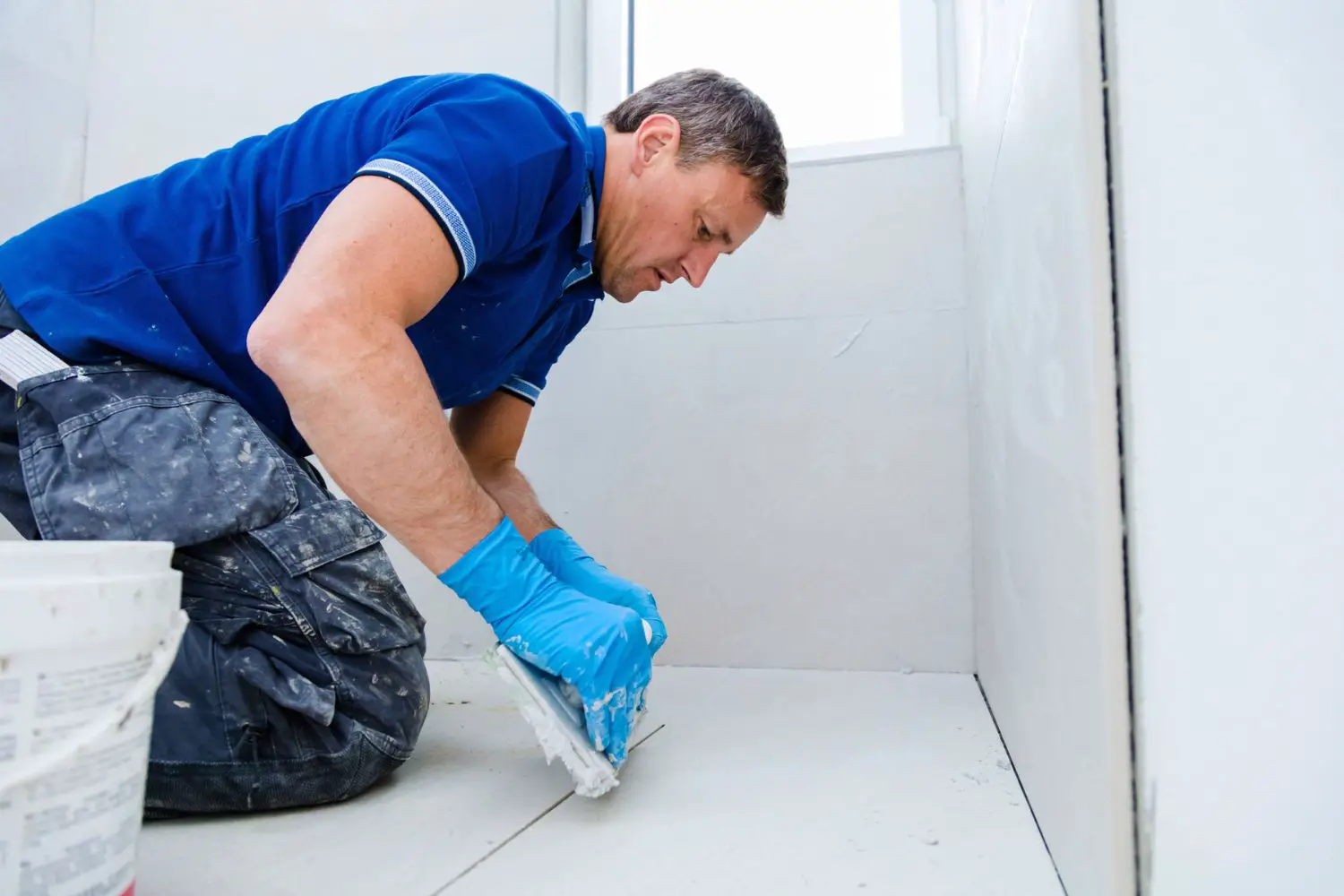I am not a magician or a mind reader, just your humble home improvement advisor, but I can bet you right here and now that most of you who are reading this article do not have a proper answer to “does grout need to be sealed.” Did I get that right? If yes, let me give you a hand on this topic and quiet away all your questions.
There are a couple of things you might like to know about grout sealing, such as how to seal grout, does all grout need to be sealed, and more. Below, I will go into detail about everything you need to know about this subject, so read on for some extra tips and information!
Does Grout Need to be Sealed?
Definitely, or at least, in most cases! Grout sealant is an important element in tile projects. Grout sealant acts as a protective layer that prevents grout lines from becoming dirty and chipping due to natural deterioration.
What Does Grout Sealer Do?
You may be wondering what does grout sealer do, so before all else, let me give you a quick overview of its job and importance in tile installation projects.
Let’s start this by saying that grout sealer is your go-to guy for your grout’s longevity. The sealant will ensure your grout lasts for a year or two, depending on how heavily the tile floor in rooms or showers is used. If you seal your grout properly, it is safe to say that your grout lines will look as fresh and pretty as when you first applied it.
As a protective layer, you will be delighted to know that the grout sealant will keep away that nasty black mold that usually grows in there and any stains or dirt that accumulates. The sealing layer also makes cleaning debris and accidental stains easier, as they will not penetrate the grout.

You will notice that when the grout is left unsealed, it quickly chips away and becomes dirty, ruining that perfectly clean look it had in the beginning. The cleaning process will then evolve into something more difficult and time-consuming.
Is Grout Sealer Necessary?
Grout sealant is necessary in most cases to prevent grout from looking old and dirty within a few months. One of the only cases when the answer to “does grout need to be sealed” would be no, is if your grout is of epoxy type. In such circumstances, grout sealing will only damage your grout and barely benefit it.
Otherwise, if you are using any other grout types that are not synthetic, your grout is better off sealed than not.
Grout sealant could be especially helpful in showers to help keep moisture from penetrating the grout and the walls. If you are still wondering do you need grout sealer or not, perhaps the benefits and drawbacks below will satisfy you:
Benefits
We touched upon the advantages above a little, but let’s settle this once and for all: grout sealing is really beneficial. Due to its porous nature, grout can trap dirt, bacteria, and more. These little fellas can make your grout look dirty and discolored over time.
With grout sealing, these unwanted bacteria and dirt will be kept away because of the barrier that the sealing forms. Of course, the sealing will wear off over time, but it will increase the lifespan of your grout compared to what it would be if unsealed.
Another reason why grout sealers are a must is that they protect the grout from moisture. It is a common phenomenon for water to get in the grout, especially in kitchens or showers. And when that happens, mildew and mold start growing on it. Both are harmful to us, especially to our respiratory system.
To prevent any issues, use a sealant so that you don’t end up cleaning the grout every two or three months. Lastly, it will keep your grout looking nice, and it will be easier to clean.
Drawbacks
All these benefits may sound too good to be true, and you might think there is a catch. Well, there isn’t… unless you do not seal the grout properly!
Let me walk you through this: before sealing the grout, chances are there are already dirt and bacteria on it, or worse, perhaps mold has been growing on it if you hadn’t already sealed it when first applied.
If not properly cleaned before you apply a sealant, these unwanted things will become trapped between the grout and the sealing layer, and not only make the grout appear dirty, but in the case of mold or mildew, they will continue to grow. And then, there will be no other way to clean the grout besides taking off the sealant, which would send you back to the starting point.
Dirt and mold aside, water could get inside if there are any cracks in the sealant because of improper application. Normally, if there is no sealant, the water in the grout will evaporate. In the case of sealant cracks from an incorrect application, water can be trapped between the grout and the sealing and will not properly evaporate for a long time.
Sealed vs Unsealed Grout
To put the differences between sealed vs unsealed grout into perspective, I have compiled the information above into a comparison table to make the answer to do you need grout sealer even clearer:
| Sealed Grout | Unsealed Grout |
|---|---|
| Has a protective layer from dirt and bacteria | Dirt and bacteria can and will accumulate on the grout |
| Easy to clean | Not as easy to clean and time-consuming |
| Sealant will protect the grout from cracks | Will start to crack sooner or later due to natural deterioration |
| Sealant will be waterproof if applied correctly | Water will get inside the grout and give way to mildew and mold to grow |
Which Type of Grout Needs to Be Sealed?
Although most grout types will need a sealant to ensure longevity, some types will do just fine even without the sealing.
Sanded Grout
Sanded grout is a popular choice for wall or floor tiles. It is composed mainly of cement and sand only. Because of its composition, sanded grout is porous. With such a high porosity, it is a given that this grout type is bound to have a high absorption rate.
Furthermore, this type is prone to collecting dirt and stains. Sanded grout would benefit from a sealant to ensure that the moisture will not get into the grout and cause any cracks or mold/mildew growth and to protect against dirt particles and stains.

Unsanded Grout
Unsanded grout is used less than its sanded counterpart. As the name suggests, it does not contain sand; therefore, it is not as porous as sanded grout. Don’t make the mistake of thinking that because it is less porous unsanded grout cannot suffer from water penetration.
Although it will definitely absorb less water in the long run, the water absorbed will still be enough to make mold grow on it.
Despite being less porous than sanded grout, unsanded grout has another downside: durability. If such a grout experiences too much pressure, it will easily crack. With both issues considered, you would do well to seal your unsanded grout lines to prevent cracking and mold alike.
Mapei Grout
I know what you guys might be thinking: MAPEI is not an actual grout type. You are right, absolutely, but I included it in the list as many people have asked me if their grout products need sealing or not.
Some products, such as the Ultracolor Plus FA grout, do not need to be sealed, but even such products would be safer and more protected if sealed. I will not list all of their grout products, but if you want to go the easy route, carefully read the packaging of the grout you will choose and see if it specifies whether or not it needs sealing. If not, you are good to go; if yes, I suggest you trust their instructions!
Epoxy Grout
Epoxy grout is the most durable on the list. It is made of epoxy resin, which is a form of plastic. It is somewhat difficult to apply compared to the rest, as it cures fast; however, the challenge is worth it!
This grout type is extremely durable and will not easily crack. In fact, it takes a lot of pressure to see any sign of chipping. It is also highly resistant to chemicals contained in cleaning products, so you will not have to worry about using the wrong product. Moreover, discoloring is out of the question as well, and so is water damage, as epoxy is waterproof.
All these features make epoxy grout a perfect choice for places like showers or high-pressure areas. And to answer if this grout needs sealing: it does not! It will be as perfect as sealed grout even if left unsealed.
Laticrete Grout
Laticrete is another brand included in the list for its extremely durable nature. Most of the grouts under this brand are of epoxy type, so you can already guess their characteristics. They are durable enough to not crack under high-pressure areas, retain their fresh colors, and not absorb any water. Hence, you can rest assured that no mold or bacteria will grow on it.
Considering these attributes, laticrete grouts will not require additional sealing unless stated otherwise in the packaging.
How to Seal Tile Grout
Does grout need to be sealed is a closed answer, and what we need to focus on right now is how to seal tile grout. It is an easy process to complete once you have the basics down. The steps below will help you down the road:
- Before applying the sealer, ensure that the grout has been cleaned and any cracks have been repaired.
- Choose an applicator that works best for you and your sealant. For example, sponges make it easier to get wider areas, whereas an applicator bottle or a squeegee tool would make your job more comfortable for narrow, thin lines.
- Start applying the sealer slowly and ensure you cover all areas to avoid cracks.
- After letting the sealer cure for 10 to 15 minutes, wipe off the excess product that might have gotten on the tiles. If you skip this part, your tiles will look all foggy from the product on top.
- After about an hour or two, apply a second sealant coating to ensure it is watertight. Repeat the same process as above.
- Test the area by pouring just a little water on the sealed surface. If the water clusters up into tiny beads, you are done.
Remember to let the sealer cure for a day before heavily using the area.
Quick tip: Not all grout sealers work with all grout types, so be careful when picking one!
How Long Should Grout Sit Before Sealing?
After long hours of applying grout, you might be tempted to apply the sealant immediately. It would be best to refrain from doing that unless you want to sign up for a disaster (and some extra work).
If you apply the sealer on top of grout that has not cured completely, the sealer will not stick properly, and after a while, it will start to peel off. Thus, your grout will be left unprotected and exposed to external damage.
I recommend waiting for about 48 hours before applying the sealer. By that time, the grout will have sat enough to fully dry.
Choosing The Right Tile Grout Sealant
As briefly mentioned above, you should choose the right type of sealant to seal the grout. Sealants fall mainly under two categories: penetrating and membrane-forming.
Penetrating Sealers
Penetrating sealers are the most popular type. These sealers penetrate the surface of the grout and soak in it without changing the grout’s texture. They also do not change the grout’s color unless you use a penetrating sealer with a different color because you want to change it.
Such sealants are great for restoring color and protecting from water, oil, and damage.
Membrane-Forming Sealers
Membrane-forming sealers offer a more basic protection type than penetrating ones. They form a layer on top of the grout’s surface, adding a bright finish. Typically, these grout sealers don’t work well for showers and areas with a lot of water exposure as if not applied perfectly, they can trap water underneath and cause mold and mildew growth. However, they work amazingly for tile installations in kitchens or floors with moderate water exposure.

